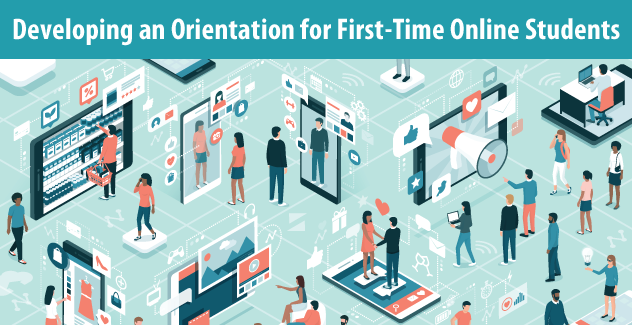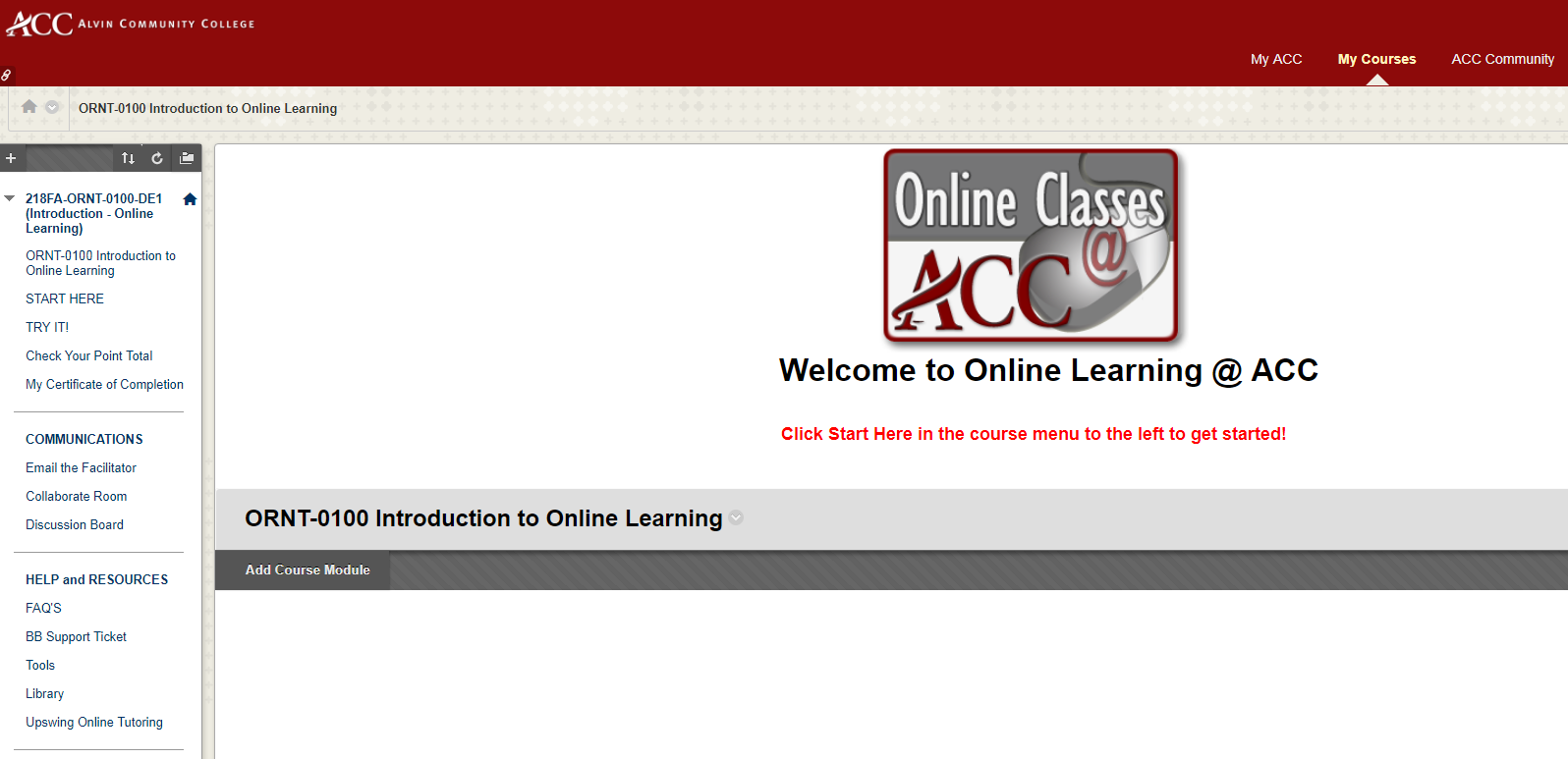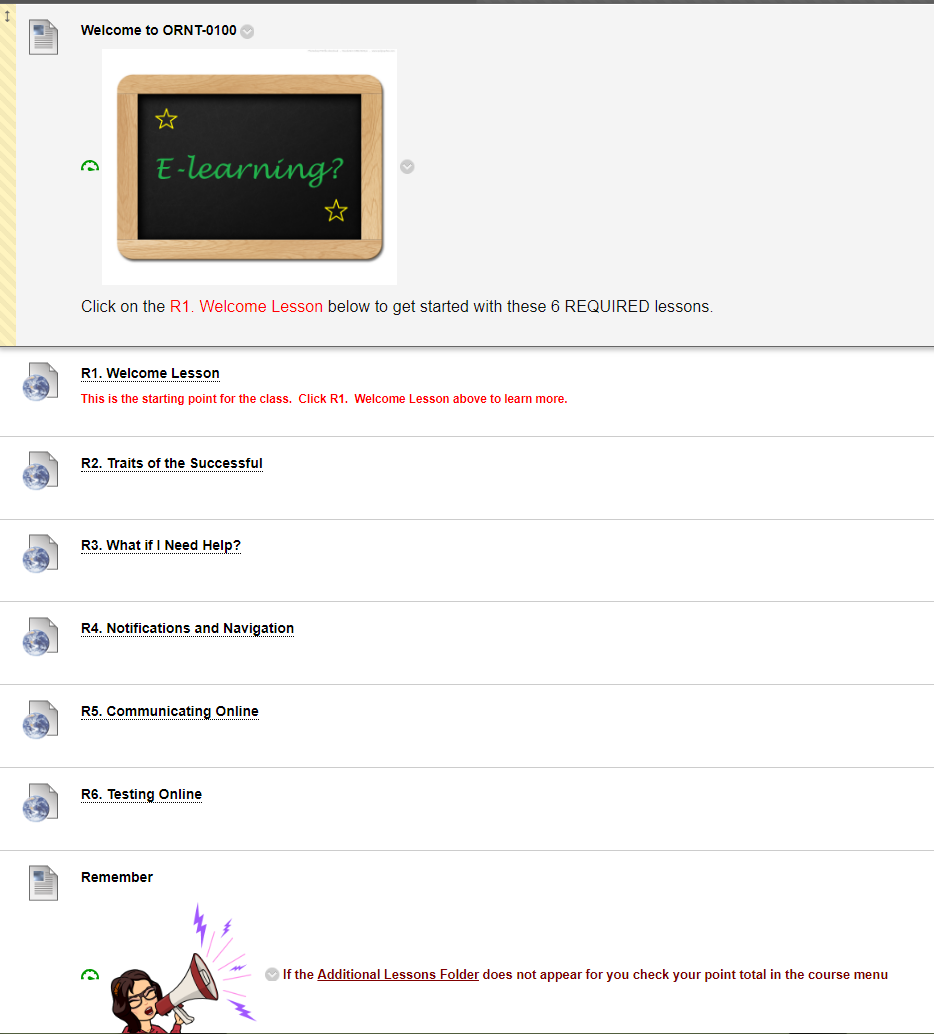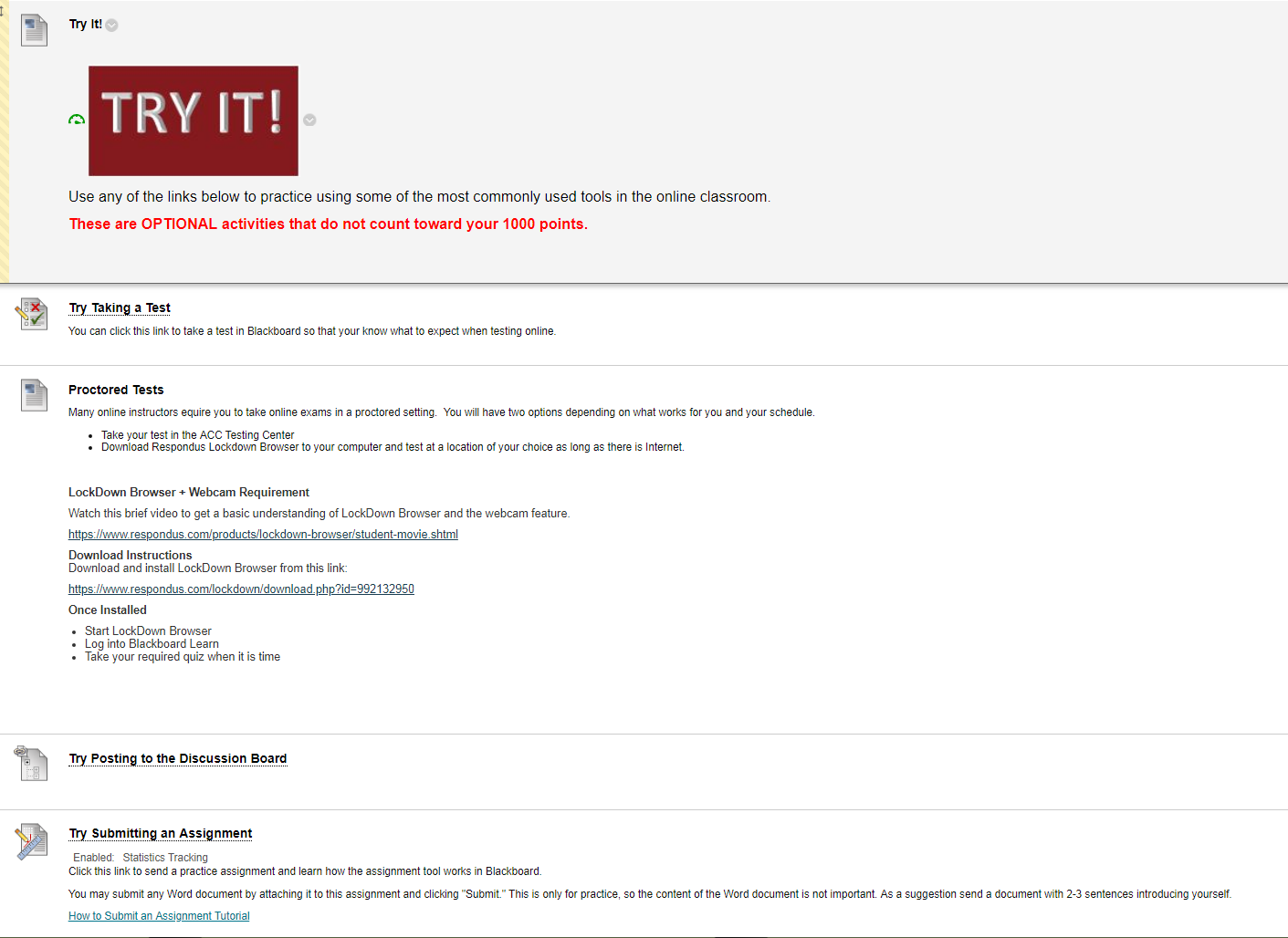
Why do students fail or drop out of online courses? Many times, they’re unprepared or have unrealistic expectations for what online learning really is. In this blog post Dena Coots will share her experience developing and implementing an online orientation for first-time online students and how it has impacted them and faculty at Alvin Community College in Texas.
Developing an Orientation for First-Time Online Students
Why do students fail or drop out of online courses? Many times, students are unprepared or have unrealistic expectations for what online learning really is. While many factors can influence student success Alvin Community College, ACC, chose to focus on removing technological barriers that prevent student success in online learning. In 2012 ACC recognized the need for a student orientation for those taking online courses through our QEP, Quality Enhancement Plan. Each institution seeking reaffirmation of Accreditation through the Southern Association of Colleges and Schools Commission on College, SACSCOC, is required to develop a QEP which describes a carefully designed and focused course of action that addresses a well-defined topic or issue related to enhancing student learning. We chose to focus on the development of a student orientation to online learning course to remove possible technological barriers to student completion and attrition in online courses at ACC.
The orientation was developed and online students were required to complete this orientation before beginning their first online course at ACC. During the 2012-2017 period we solicited feedback from students and faculty regarding the Introduction to Online Learning orientation that we developed. Based on this feedback we discovered that students and faculty alike found the orientation too long, too tedious, and even overwhelming to complete. Some students took up to 5 hours to complete this orientation which was found to be excessive in the opinion of the institution.
I was then tasked with the responsibility of redesigning this course to meet the following needs;
- A course that could be completed in approximately 1 hour or less.
- A course that still maintained the original intent and outcomes of the previous course.
- A course that still contains assessment of learning outcomes for data-driven decision making in the future.
In searching for possible ways to design this course I quickly thought of using SoftChalk to drive the design process. Having used SoftChalk in designing other courses I facilitate I knew that this software would assist me in delivering a quality and engaging learning experience for our students.
I used a simple model to develop the learning experience. I created 15 lessons in SoftChalk. Each lesson contains a video lesson and concludes with a short built-in assessment that is worth 100 points. Students begin by completing 6 required lessons and then have the option of completing at least 4 more lessons of their choice from the remaining 9 lessons working toward the ultimate goal of 1000 points and receiving the Certificate of Completion.
| The course is housed in Blackboard, our chosen learning management system. I used release criteria in Blackboard to require the first six lessons to be completed before a folder with the additional nine lessons is opened to the learner. The integration between SoftChalk and Blackboard easily pushes the points from each assessment into Blackboard for students to view immediately. |  |
|
The required six lessons are titled,
The additional 9 lessons cover,
|
 |
| In addition, the course contains a “Try It” link. This provides students with the opportunity to test the various tools in Blackboard that will be used in most online courses such as submitting assignments, posting to the discussion board, sending course emails and messages, submitting to Turnitin, and taking a proctored online exam. |  |
After 1 full year of implementing this new course design students report a much faster completion time and positive feedback on the new streamlined course design. While it is too early to evaluate the direct impact of this orientation on student success I can tell you that instructors report students having fewer “technical“ issues with Blackboard and the helpdesk reports receiving fewer support tickets from students needing help with the LMS.
What are the users saying?
“I am a first year student taking online courses at ACC. Thank you for taking the time to put together this tutorial. It is not only well thought out but also creative from a design stand point.” —Student
“This course was fun, and I really enjoyed working through the lessons.” —Student
“This course really helped me feel prepared for my online class.” —Student
We receive fewer calls from students with Blackboard problems at the IT helpdesk since we started using the Intro. To Online Course.” —IT Helpdesk
“My online students seem more prepared to begin the online course after taking the ORNT-0100 course.” —Online faculty
 Dena Coots is the Director of Distance Education and Instructional Design at Alvin Community College on the Texas Gulf Coast. She holds an A.A. in music, a B.S. in Interdisciplinary Studies, and a master’s degree in Instructional Technology which she received from the University of Houston Clear Lake. She was a former middle school science teacher but has been working in higher education for over 13 years. She has presented at many local and national conferences related to distance education including Blackboard World conference, USDLA, and TxDLA, TBUG, and the Wimba distinguished lecturer series. She is a graduate of the Institute for the Engaged Leadership Learning Online Learning, IELOL, a Blackboard MVP, and a workshop facilitator for the Online Learning Consortium.
Dena Coots is the Director of Distance Education and Instructional Design at Alvin Community College on the Texas Gulf Coast. She holds an A.A. in music, a B.S. in Interdisciplinary Studies, and a master’s degree in Instructional Technology which she received from the University of Houston Clear Lake. She was a former middle school science teacher but has been working in higher education for over 13 years. She has presented at many local and national conferences related to distance education including Blackboard World conference, USDLA, and TxDLA, TBUG, and the Wimba distinguished lecturer series. She is a graduate of the Institute for the Engaged Leadership Learning Online Learning, IELOL, a Blackboard MVP, and a workshop facilitator for the Online Learning Consortium.

One Comment
Rose McGhie
I seldom ever thought of the orientation process of the students and their readiness for online learning. Sometimes I am thrown into a class to start teaching the next day. This information on developing orientation for first time online students is rather helpful. The lens I will use to teaching online will be improved as a result of this presentation.